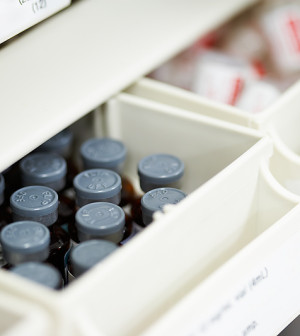- Could Your Grocery Store Meat Be Causing Recurring UTIs?
- Are You Making This Expensive Thermostat Error This Winter?
- Recognizing the Signs of Hypothyroidism
- 10 Strategies to Overcome Insomnia
- Could Artificial Sweeteners Be Aging the Brain Faster?
- Techniques for Soothing Your Nervous System
- Does the Water in Your House Smell Funny? Here’s Why
- Can a Daily Dose of Apple Cider Vinegar Actually Aid Weight Loss?
- 6 Health Beverages That Can Actually Spike Your Blood Sugar
- Treatment Options for Social Anxiety Disorder
ADHD Common Among College Students Who Misuse Stimulant Drugs

College students who misuse stimulant drugs are more likely to have attention-deficit hyperactivity disorder (ADHD) or other psychiatric problems, a new study shows.
The study also found that immediate-release stimulants are more likely to be misused than extended-release versions of the drugs.
A previous study found that nearly two-thirds of college students had been offered stimulants for non-medical use, and 31 percent had used them over a four-year period.
The new Massachusetts General Hospital study included 300 undergraduates between the ages of 18 and 28 at Boston-area campuses. One-third misused stimulant drugs.
Misusers were more likely to have been diagnosed with ADHD or to have related symptoms as children, such as being easily distracted and having trouble paying attention. As adults, they were more likely to have trouble following instructions and to dislike tasks requiring focus.
Misusers also were more apt to meet criteria for substance-use disorder — including use of drugs and alcohol together. Two-thirds met or approached criteria for stimulant-use disorder. They got stimulants from friends or acquaintances, were more likely to say they used any drugs to “get high” and had a lower overall sense of well-being.
The study was published recently in the Journal of Clinical Psychiatry.
“Our data suggest that college students who misuse prescription stimulant medications are more likely to exhibit clinically relevant psychiatric dysfunction,” corresponding author Dr. Timothy Wilens said in a hospital news release.
He said not everyone uses these drugs simply to “get high.”
“Some misusers may be pressured to use a friend’s prescription if they believe it will improve academic performance, which is not likely if combined with alcohol or other drugs,” said Wilens, chief of child and adolescent psychiatry and co-director of the hospital’s Center for Addiction Medicine.
“We know that untreated ADHD is associated with increased risk of alcohol- and drug-use disorders, so it is not surprising that we found high rates of co-occurring ADHD and of stimulant-use and overall substance-use disorders in those misusing stimulants,” he said.
More information
The U.S. National Institute on Drug Abuse has more about stimulant ADHD drugs.
Source: HealthDay
Copyright © 2026 HealthDay. All rights reserved.










